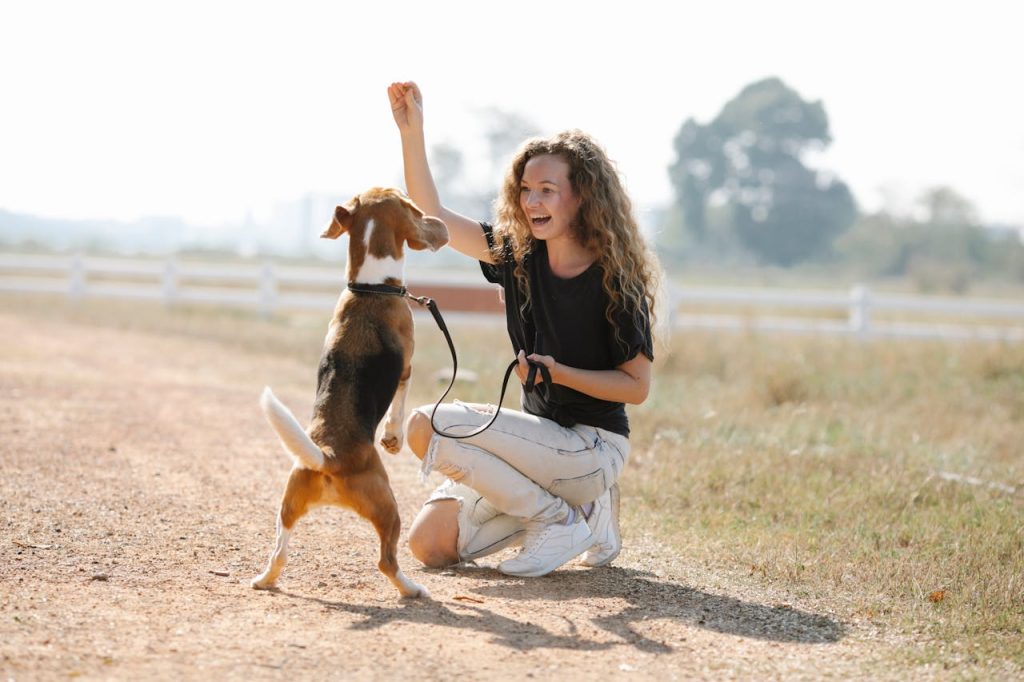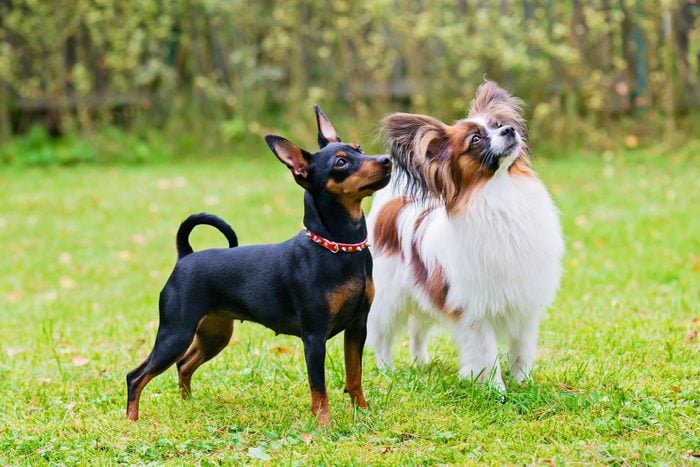Beagles are one of the most beloved dog breeds, known for their friendly demeanor, keen sense of smell, and adorable floppy ears. These small to medium-sized hounds make excellent companions and are cherished for their playful and affectionate nature.
This guide explores everything you need to know about Beagles, from their history to care requirements, to help you decide if this breed is the perfect fit for your lifestyle.

Table of Contents
Introduction to Beagles
Beagles are cheerful, friendly dogs that have long been a favorite of families and hunters alike. Known for their excellent sense of smell and tracking abilities, Beagles are often employed as scent detection dogs.
They are also adored for their affectionate and social nature, making them ideal companions for families with children.
History and Origin of Beagles
The history of Beagles dates back to ancient Greece, where small hounds resembling Beagles were used for hunting.
The modern Beagle originated in England in the 19th century, bred as a pack dog for tracking hare and other small game.
Their exceptional tracking abilities and loyal temperament quickly made them a popular breed.
Why Beagles Were Created
Beagles were bred for hunting, particularly for tracking rabbits and hares. Their compact size, incredible sense of smell, and stamina made them perfect for this role.
Today, while many Beagles are still used for hunting, most are kept as family pets.

Physical Characteristics of Beagles
Beagles are small to medium-sized dogs with a sturdy, muscular build that supports their energetic and active lifestyle. They typically stand 13-15 inches tall and weigh between 20-30 pounds, depending on their size category.
Beagles are recognized by their expressive brown or hazel eyes, which give them a warm and friendly appearance. Their long, floppy ears not only enhance their sense of smell by directing scents toward their nose but also add to their charming looks.
They have a short, dense coat that is weather-resistant and commonly comes in tri-color (black, white, and tan) or bi-color variations.
A distinct feature is their slightly curved tail, which is often tipped with white to make it visible when they are tracking in tall grass or fields.
Temperament and Personality of Beagles
Beagles are known for their curious, playful, and outgoing nature. They are highly social and thrive in the company of both humans and other dogs. Beagles are gentle and great with children, making them excellent family pets.
However, they can be stubborn and independent, which adds a touch of challenge to their training.

Bite Force and Jaw Strength
Beagles have a moderate bite force compared to larger breeds. Their bite is not particularly strong but is sufficient for their natural role as scent hounds. They are not aggressive by nature, but proper training ensures safe interactions with people and other pets.
While their jaw strength is not remarkable, they are known to be enthusiastic chewers, so providing durable toys is essential to prevent destructive behavior.
Choosing the Right Beagle Puppy
Selecting a Beagle puppy requires careful consideration to ensure you find a healthy and well-adjusted companion. Start by researching reputable breeders who prioritize the health and temperament of their dogs.
Visit the breeder’s facility to observe the living conditions and meet the puppy’s parents, which can provide insight into the potential behavior and health of the puppy. Look for a puppy that is active, curious, and interacts well with humans and littermates.
Beagles are prone to specific health issues, so inquire about health screenings for common genetic conditions such as hip dysplasia and epilepsy.
Additionally, early socialization and exposure to various environments will set the foundation for a well-rounded adult Beagle. For more tips, check out our “Guide to Choosing Your Dream Puppy“.

Intelligence and Training of Beagles
Beagles are intelligent dogs with a strong sense of curiosity, which stems from their history as scent hounds. While their intelligence is an asset, it also makes them independent thinkers who can be stubborn during training.
Beagles excel in tasks that involve their sense of smell but may require extra patience and consistency when teaching basic obedience commands. Positive reinforcement methods, such as treats and praise, are highly effective in motivating them.
Be sure to keep training sessions engaging and varied to hold their attention. Early training and socialization are crucial to manage their natural tendencies to follow scents and ensure they grow into well-behaved companions. Puzzle toys and scent games can also help stimulate their minds and prevent boredom.
Exercise and Energy Levels
Beagles are energetic dogs that require regular exercise to maintain their physical and mental health. Daily walks are essential, as they allow Beagles to explore their surroundings and satisfy their natural scent-tracking instincts. Playtime in a secure yard or dog park can help burn off excess energy.
Beagles also enjoy activities like agility training, scent work, and fetch. However, due to their strong prey drive, they should always be leashed or in an enclosed area when outdoors.
Lack of exercise can lead to behavioral issues, so ensuring they get enough physical activity is vital for their well-being.

Diet and Nutrition
A balanced diet is crucial for a Beagle’s health and longevity. High-quality dog food, tailored to their age, size, and activity level, is recommended. Beagles are notorious for their love of food and can be prone to overeating, which makes portion control essential.
Divide their meals into two or three portions per day to prevent obesity and related health problems. Treats can be used for training but should be given in moderation. Fresh water should always be available to keep them hydrated.
Consulting a veterinarian for specific dietary recommendations can ensure your Beagle gets the nutrients they need to thrive.
Health and Lifespan
Beagles are generally healthy dogs with a lifespan of 12-15 years, but they can be susceptible to certain health conditions. Common issues include hip dysplasia, epilepsy, hypothyroidism, and ear infections. Their long, floppy ears can trap moisture and debris, leading to infections if not cleaned regularly.
Regular veterinary check-ups, a healthy diet, and proper exercise can significantly contribute to their overall health.
Vaccinations, parasite prevention, and dental care are also essential components of a Beagle’s healthcare routine. Early detection of health problems through routine screenings can help ensure a longer, healthier life.
Grooming and Coat Care
Beagles have low grooming needs. Their short coat requires weekly brushing to remove loose hair and keep it shiny.
Regular ear cleaning is essential to prevent infections due to their floppy ears. Nail trimming and dental care should also be part of their grooming routine.

Working Roles and Versatility
Beagles excel in various roles beyond being family pets. Their keen sense of smell makes them valuable in search and rescue operations and as detection dogs in airports and customs.
These dogs are often employed to sniff out illegal substances, agricultural products, and even certain medical conditions. Beagles are also popular as therapy dogs due to their gentle and friendly nature.
Their versatility and willingness to work make them an asset in many professional settings, highlighting their adaptability and intelligence.
Fun Facts About Beagles
- Beagles were a favorite breed of President Lyndon B. Johnson, who owned two named Him and Her.
- The cartoon character Snoopy is a Beagle.
- Beagles rank among the top 10 most popular dog breeds in the United States.
Challenges of Owning a Beagle
Beagles are wonderful companions, but they come with challenges, such as:
- Their strong scent drive can lead to wandering if not leashed.
- They can be vocal and prone to howling or barking.
- Beagles require consistent training to manage their stubbornness.
Owning a Beagle requires patience and dedication, but the rewards of their companionship and loyalty are well worth the effort.

Tips for Potential Owners
- Ensure you have the time and energy to meet their exercise needs.
- Puppy-proof your home, as Beagles are curious and may chew or dig.
- Be prepared for regular grooming and health check-ups.
- Invest in training and socialization to help them thrive as well-behaved companions.
- Provide plenty of mental stimulation, such as puzzle toys and scent games, to keep their curious minds engaged.
Beagle Puppies: What to Expect
Beagle puppies are bundles of energy and curiosity, eager to explore their environment. They require early socialization and consistent training to develop into well-mannered adults.
Expect them to be playful and mischievous, with a tendency to chew on objects as they teethe. Providing a variety of toys and safe chew items can help redirect this behavior.
Crate training is highly recommended to establish boundaries and assist with housebreaking. Regular vet visits are essential to monitor their growth and address any potential health concerns.
With proper care, Beagle puppies will grow into loyal and loving companions.
Breeding and Reproduction
Breeding Beagles requires expertise and dedication. Ethical breeders prioritize the health and temperament of their dogs, conducting genetic tests to reduce the risk of hereditary conditions.
Raising a litter involves careful monitoring and socialization to ensure the puppies are healthy and well-adjusted. Beagles typically have litters of 6-8 puppies, and the mother requires a balanced diet and veterinary care throughout the pregnancy.
Breeding should always be undertaken responsibly, with a focus on improving the breed rather than profit.

Final Thoughts on Beagles
Beagles are lovable, loyal, and endlessly entertaining. Their playful personalities and affectionate nature make them ideal companions for families and individuals alike.
While they come with challenges like stubbornness and a strong scent drive, these are easily managed with proper training and care. If you’re looking for a friendly, energetic, and versatile dog, the Beagle might be the perfect choice for you.
If you’re fascinated by dogs and want to explore more amazing breeds, don’t miss our in-depth guides on Bulldogs, Poodles, German Shepherds, Golden Retrievers, and French Bulldogs.
Each breed has its own unique charm, personality, and care needs. Whether you’re looking for a loyal protector, a playful companion, or a gentle family friend, our expertly crafted articles have you covered. For more insights, check out our Labrador Retriever Guide and discover why they’re one of the most beloved breeds worldwide!
FAQs
Are Beagles good with children?
Yes, Beagles are great with children. They are gentle, playful, and patient, making them excellent family pets.
Do Beagles require a lot of exercise?
Beagles are energetic and need daily walks and playtime to stay healthy and happy. They also enjoy activities that engage their keen sense of smell.
How do I manage a Beagle’s stubbornness during training?
Beagles respond well to positive reinforcement. Use treats, praise, and consistency to encourage good behavior. Early training and socialization are key.
What common health issues do Beagles face?
Beagles can be prone to ear infections, obesity, hip dysplasia, and epilepsy. Regular vet check-ups and preventive care can help manage these risks.
Are Beagles easy to groom?
Yes, Beagles have low grooming needs. Weekly brushing and regular ear cleaning, along with nail trimming and dental care, keep them looking and feeling their best.




